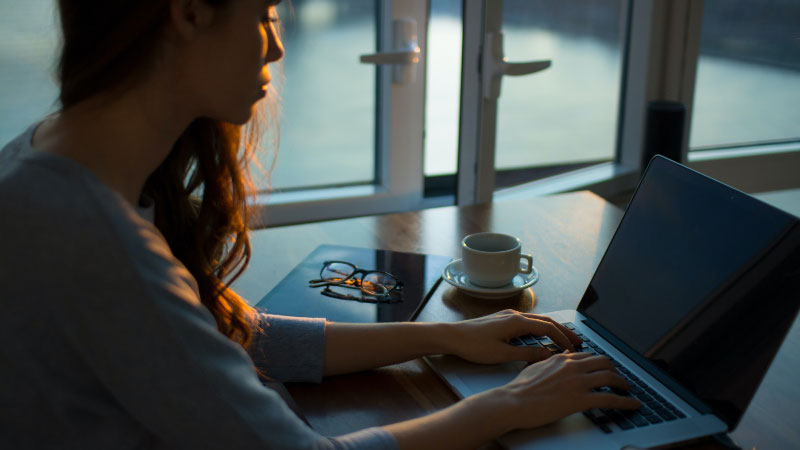
By Ruth Simpson, PhD student at Oxford Brookes Business School, International Centre for Coaching and Mentoring Studies
If you’re a PhD researcher working remotely and from home, and finding it a bit of a struggle, this note describes what you could be experiencing and what could make the next few weeks a bit better. Even if you’re finding a way of taking this in your stride, it could explain how some others around you are reacting. It’s based on my PhD research exploring transitions at work and my coaching practice enabling people to adapt and respond to change.
Let’s start with how you may be feeling. At a guess there could be some fear about a contagious virus circulating the globe: a sense of shock about how much life has changed and possibly some gloom about the impact this is going to have on your carefully laid out programme of research. Whatever you are feeling, there may also be a sense of immobilisation, as you become overwhelmed by the situation, or at least find it difficult to concentrate with so much going on. Studies show we react emotionally to events and interruptions like this, it’s a natural response, so recognising how you feel and sharing that could be one place to start to ease things.
Where change is the outcome, transition is the process, so you may also be somewhere in between life before and life after ‘lockdown’. There are three parts to this recognised process.
- Separate from daily life and routine, giving up our usual ways of living and
- Go through the betwixt and between of letting go of the way we used to live and work and getting to grips with how things are
- Integrate new ways to live and work at home
The separation is tricky because we know what used to work and what we could do, so it’s tough to give that up. Having to be at home forces the physical separation, but psychologically, maybe we are clinging on to what ‘should’ be happening and that’s stopping us embracing the reality of what we’re dealing with now. Any stage of the PhD journey could be impacted in some way or another, whether it means bringing a halt to fieldwork plans, or being distracted during the writing process. With such uncertainty, it isn’t easy to work out what could be rescheduled to when, so on one level maybe we’re dealing with the loss of what could have been as well.
Going through the betwixt and between is unfamiliar and disorientating. It is a period of time that involves understanding what is different, seeing what works and what doesn’t and how we feel about things now. Once we’ve found a way to manage the emotion and accept the loss of what was going to happen, there may be a temptation to charge ahead, to get busy doing something, or anything, just for the sake of it. However, successful and sustainable transitions involve having the patience at this point to embrace the chaos: work with how we feel: update our models of the world: consider any and all options, test them out, experiment and play with what may be possible now.
The end point of the transition is when we feel we have found a way to cope with the differences and integrated new ways of thinking and doing things into our lives. We’ve worked through the emotions and tensions of letting things go, revised our mental models: tested doing things differently and found the solutions that worked. This point may be as much about how we feel, as well as how much more productive we are.
In my first 18 months as a part time PhD researcher, I’ve come to realise how disruptions in some form or another are all part of the journey. There is however every chance that extraordinary events such as these will take their toll emotionally, psychologically, cognitively and physically, so here are some tips that might help along the way:
- Recognise how you feel, let the emotions out, look at the dark side, how bad can this be, what is the worst that can happen, what are you really worried about? Have a good cry on your own, or with others, get it all out. Once you’ve done this, work out what you can control and make a plan to take some action to address your
- Ask yourself what else is possible now, what is good here, what can you be glad about, at this time, that may never happen again and focus on what matters? There is always an upside, sometimes you just have to look harder to find
- Look after and be kind to yourself. How can we be at our best and look after others if we don’t look after ourselves? Start with the basics, eating and sleeping well, exercising and look for joy where you can. This too will pass and it will help you to be ready for when we are all back to normal – whatever normal is!
“Although the world is full of suffering, it is also full of the overcoming of it.”
Helen Keller
